Browser emulator is a technique that allows your browser to appear as if it is running on a different device, operating system, or browser. This method is often used for website testing, privacy protection or Access content restricted by region or platform.
So how does browser emulation work? Is it really safe and legal? In this article, Hidemium will help you understand how it works, when to use it, and important notes to effectively exploit this tool in practice.
1. What is a browser emulator?
Every time you visit a website, your browser sends along a small piece of data called a user agent string. This information helps the website determine which browser you are using, what version, what operating system you are running on, and even what device you are using – phone, tablet or desktop.
Based on that data, the website will choose the appropriate interface version to display, for example: mobile or desktop.
Browser emulator is the act of changing – or “disguising” – that user agent string. Instead of having the browser send the correct identifying information, you can make it look like a completely different device or browser. For example, you can emulate Chrome on Windows as Safari on iPhone with just a few taps.
Emulation does not require high technical skills. Users can do it through Developer tools available in the browser, Extension, or use specialized software such as Hidemium, helping to optimize the experience and expand many testing capabilities.
When to use a browser emulator?
Website Testing across different devices and browsers without using a real device.
Protect identity and privacy, limiting being tracked by user behavior analysis systems.
Bypass geo-block to access content that is only available in certain countries or platforms.

>>> Learn more: Ad Blocking Extensions: Which is the Best Choice in 2025?
2. What is a User Agent? What are its components and why do websites need it?
When you visit a website, your browser sends a string of text called a user agent string. This string allows the website to identify the type of browser, device, as well operating system that the user is using. As a result, the website content will be adjusted to display appropriately for each specific case.
Usually, one user agent will include the following components:
Browser name and version (eg Chrome, Firefox, Safari)
Operating system (Windows, macOS, Android, iOS,...)
Device Type (desktop, laptop, phone or tablet)
Rendering engine that the browser uses (such as WebKit, Blink, or Gecko)
Example of a user agent string:
Based on the above information, the website will recognize that the user is using a browser Chrome, running on the operating system Windows 10 64-bit version, and use engine WebKit to display content.
Why do websites use user agent information?
Information from user agent helps website Optimize user experience, specifically:
Automatic interface adjustment adapts to screen size and browser type
Show different versions for mobile and desktop
Block incompatible browsers or old is no longer supported
Access Data Analysis, helps identify bots or suspicious activity
However, besides the benefits,The user agent also reveals quite a bit of personal information about the user's device.. That is why many people choose/emulate or change user agents to protect your identity, increase anonymity when accessing the web, or overcome server-side restrictions.
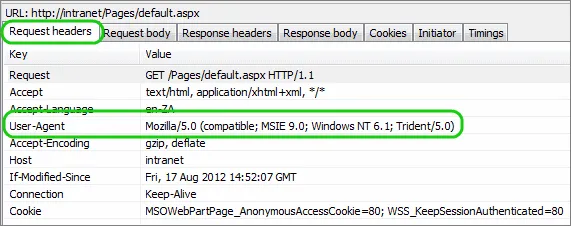
>>> Learn more: What is SAN? Discover its business benefits and how it works
3. Why use a browser emulator?
Job browser emulator offers many practical benefits, depending on the purpose of use. For programmers, it is an effective interface testing tool. For those working in marketing, advertising or automation, it helps overcome access restrictions, anonymize, and simulate user behavior. Here are the most common scenarios:
3.1. Test website on multiple devices and browsers
Developers often need to test how a website looks and behaves on different devices or browsers. Instead of constantly switching between phones, tablets, and multiple browsers, they can use the technique user agent emulator to simulate user experience on a single device, thereby saving time and improving accuracy during testing.
3.2. Bypassing content access restrictions
Some websites only display content to certain devices or browsers — for example, allowing only mobile users access, or blocking older browsers. Browser emulator allows you to “impersonate” another device, making it easy to bypass access restrictions and see hidden content.
3.3. Limit the risk of being tracked
While it cannot replace in-depth security tools, change users until a simple way to help reduce the possibility of being tracked. If a website records and tracks users based on browser or device, emulation can help you “hide” in the data crowd.
3.4. Simulate multiple users and devices
In advertising, marketing or automation campaigns, sometimes you need to simulate multiple devices and users with diverse behaviors to increase naturalness and avoid being flagged by the system as abnormal activity Browser emulator is the ideal tool to do this, generating “human” traffic from a variety of sources.
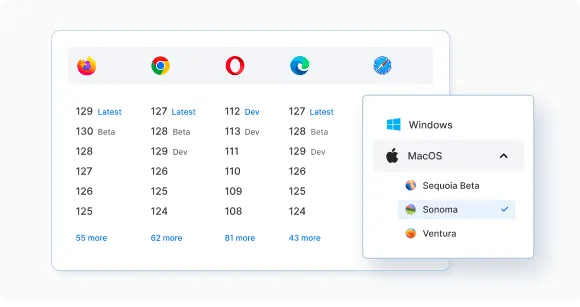
>>> Learn more: What is SD-WAN? How it works and what are the benefits for your business?
4. How to emulate a browser simply and effectively
You don't need to have any in-depth technical knowledge to use a browser emulator. Today, there are many easy-to-implement methods that suit different needs – from basic testing to advanced automation. Here are some popular ways to help you change user agents to simulate browser behavior efficiently.
4.1. Using the DevTools available in the browser
Modern browsers like Chrome, Firefox, Safari are all built-in Developer Tools (DevTools), allowing you to change user agent temporary to test the look or behavior of a website on different devices.
Example on Google Chrome:
Right click on the website and select Inspect
Click the three dots icon in the upper right corner of the DevTools frame
Select More tools > Network conditions
Uncheck Use browser default, then select or enter new user agent
✅ Advantages: easy to operate, no additional installation required
⚠️ Limitation: settings will be reset when you reload the page or close the tab
 có sẵn trong trình duyệt.webp)
4.2. Install the extension to change the user agent
If you need change user agent quickly and maintain stability throughout the working process, the extension like User-Agent Switcher is the right choice.
Benefits of using the user agent change utility:
Simple installation, easy to use even for non-professionals
Supports fast switching between different user agents
Can be applied across multiple tabs or the entire browser
However, it should be noted that these utilities just change the user agent string, while other identifying marks such as time zone, font, screen resolution remain the same – this may expose you if you need a high level of anonymity.
4.3. Use scripts or code snippets for automation and scraping
For those who are doing automation or web scraping, the change user agent Through source code is a more powerful and flexible method.
Example with Python (requests library):
Additionally, tools such as Selenium or Puppeteer allow setting up user agents in the environment headless browser– useful when you need to simulate real user behavior without displaying the browser interface.
This method is suitable for people with basic programming knowledge or higher and need detailed control over browser behavior.
>>> Learn more: What is CCNP? The IT Career Breakthrough You Shouldn't Miss
5. More efficient browser emulation solution with Hidemium
Many people often use extensions or built-in tools in their browsers to use a web browsing environment emulator. However, most of these methods only change user agent, while modern websites can identify users through many other factors such as screen resolution, time zone, system fonts or how you move the mouse.
If you are looking for a tool More stable and accurate browser emulator, then Hidemium is an option worth considering.
Hidemium is one antidetect browser, allowing users to create multiple browser profiles (profile) separately. Each profile can emulate a different device, operating system, and browser – all running independently on the same computer.
Hidemium's notable features include:
Customize browser parameters in detail such as: user agent, time zone, language, operating system platform...
Prevent WebRTC leaks, protect your IP address even if you use a proxy
Independent Profile: cookies, cache and logins are not mixed between profiles
Intuitive interface, easy to use, good support for all operating systems Windows and macOS
Whether you are a website testing programmer, Manage multiple accounts, or run automation, Hidemium offers the experience Powerful and convenient browser emulator, superior to conventional tools.
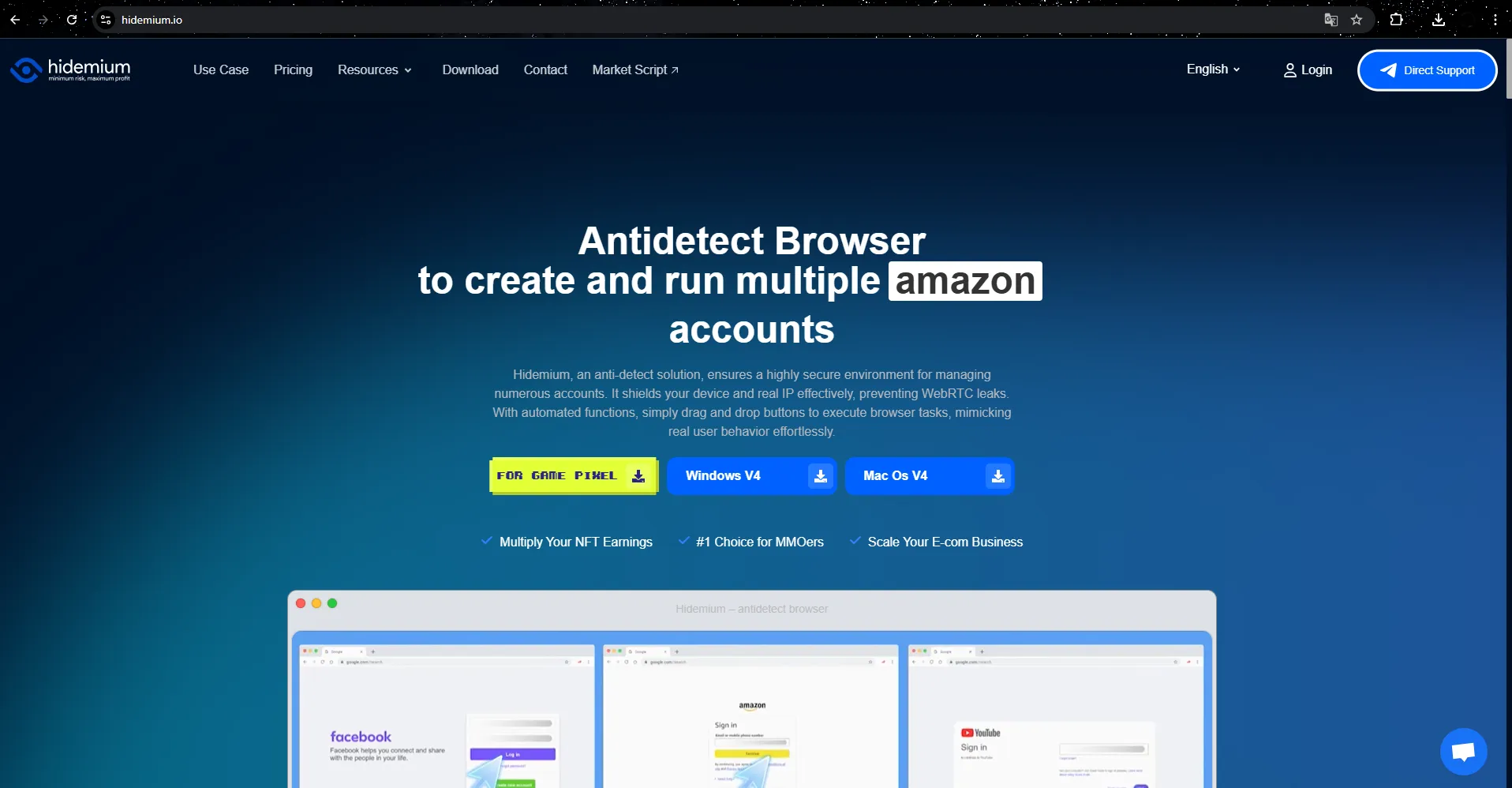
>>> Learn more: What is an ISP? Things to Know About Internet Service Providers
6. Is browser emulation illegal?
In essence, Browser emulation is not illegal. In most countries, it is up to users to change information such as user agents legally, because you have full control over the data your browser shares with websites.
However, whether using an emulator is considered legal or not depends on specific use. Here are some illustrative examples:
Legal and Acceptable: Emulating browsers to test website interfaces on multiple devices, or to protect privacy while surfing the web is a popular activity among programmers, QA, and individual users.
May violate platform policies: If you use an emulator to create multiple accounts on a platform that does not allow it or to bypass moderation, you may violate the terms of use, resulting in account locked or blocked.
Clear violation of the law: Cases of using emulators to impersonate identities, commit fraud, control harmful bots or infiltrate systems – especially acts related to data theft, will be handled according to current cybersecurity laws and regulations.
Browser emulators are just tools– what matters is what you use it for. If the purpose is clear and doesn’t harm the platform or anyone else, then it’s perfectly legal. Make sure you understand the rules of the platform you are using,and tool selection like Hidemium to manage emulation efficiently and securely.
>>> Learn more: What is a PAN Network? Advantages, Disadvantages and Applications of PAN
7. Potential risks of browser emulation
Job browser emulator It seems simple, but if you don't understand how modern websites work, you can easily encounter unexpected risks. Here are some common errors that users often encounter:
7.1. Website interface display error
Many sites use user agent to determine the user's device and browser type to display the appropriate interface. If you emulate an older device or an uncommon browser, your website may display incorrectly — such as broken layouts, missing buttons, or some functions not working as expected.
7.2. Some features are not available
Improper emulation can cause Some functions on the website to be disabled. For example, video streaming platforms, web apps, or drag-and-drop tools may refuse to work if the browser you are using is not officially supported. This disrupts the user experience and affects productivity.
7.3. Marked as Abnormal Behavior
Many platforms use user behavior tracking technology to detect anomalies. If the user agent that you submit does not match the actual behavior of the browser, the system may consider it suspicious. This is especially likely when the website uses technologies such as browser fingerprinting. As a result, your account may be logged out, have limited functionality, or even be locked.
7.4. Emulation does not mean absolute anonymity
Changing the user agent only helps you hide some browser information, but does not guarantee Completely anonymous. Websites can still collect data from cookies, screen resolution, fonts, time zone, and many other factors. If your goal is to enhance privacy, then simple simulation is not enough.
Understanding these risks will help you use the emulator more intelligently and safely. Most mistakes can be avoided if you understand what you're editing and how it affects your browsing.
8. Conclusion
Browser emulators are a useful tool if you want to control how websites respond, test interfaces, or create rich browser environments. However, how well you use them depends on how you understand the limitations and risks involved.
Changing your user agent can help you increase your privacy or bypass some access restrictions, but this is not a comprehensive solution. If you are in need of a more powerful tool to Manage multiple accounts, enhance anonymity, or emulate the browser at a deeper level, then dedicated solutions like Hidemium will bring stability and superior efficiency.
Use the emulator wisely, respect the policies of the platforms you are interacting with, and only use them when they are really necessary for the job. A good tool is only really effective when used correctly, for the right purpose.
9. Frequently Asked Questions (FAQ) about User Agent
1. Is it possible to emulate a user agent?
Yes. You absolutely can user agent emulator in a variety of ways, including using developer tools in your browser, installing extensions, or running automated scripts. This method allows you to change the way your browser identifies itself with websites, thereby simulating different access behaviors.
2. Which browsers allow changing the user agent?
Popular browsers like Chrome, Firefox, Safari and Microsoft Edge All support changing user agents. Users can operate directly in DevTools (developer tools) or install a dedicated extension to customize the user agent as needed.
3. Browser agent (hay user agent string) là gì?
A user agent is a short text string that a browser sends to a website to indicate the type of device, operating system, and browser version being used. You can check your user agent at www.whatsmyua.info.
4. How to simulate a user agent on Safari?
On Safari, you can enable the menu Develop by accessing Preferences > Advanced, then check the box "Show Develop menu in menu bar". Once the Develop menu is displayed, simply select Develop > User Agent and select or enter the desired user agent string.
5. How to use fake user agents when web scraping?
When collecting data using tools such as Python (với Requests, Selenium) or Puppeteer, you can install user agent on request headers. This helps bots simulate real user behavior and bypass some of the website's basic security layers.
6. Can the default user agent be overridden?
Absolutely. Most browsers and automation libraries today allow users to optionally override the default user agent with its own chain, which increases anonymity and flexibility during use.
7. How does the website identify the browser?
Websites often rely on information in user agent string to determine the type and version of browser you are using. This data helps them optimize content display, improve user experience, and serve statistical analysis purposes.
8. How does the website detect fake user agents?
Some websites may Identify fake user agents by matching the user agent string to the browser's actual behavior. For example, mismatched screen resolutions, missing required features, or using techniques browser fingerprinting to detect the browser's true identity.
Related Blogs
Choosing the right eCommerce platform is a crucial step for online sellers to showcase their products effectively. While Amazon is a popular choice for many, other platforms like Shopify and Etsy are also worth considering.So, how do Shopify and Etsy compare?Both platforms offer unique advantages for beginners. However, what works on one platform might not be suitable for the other. So, how do[…]
China is a country that applies strict Internet censorship with the "Great Firewall" system, making it difficult to access international websites and services. In that context, Free China VPN becomes an essential tool to help users overcome censorship barriers, ensuring free and safe access to the Internet. Together Hidemium Antidetect Browser discovered 7 Best Free Chinese VPNs in 2025 that you[…]
Are you starting your content creation journey and struggling to get free YouTube views? Getting your first 1,000 views can be a big challenge, especially if you don’t want to run ads or use support tools. However, it is completely possible to get free YouTube views without using tools and without running ads if you apply the right strategy. In this article, you will discover effective, safe and[…]
Shadowrocket is an application Premium proxy for iOS devices, allowing users to secure connections, access region-restricted content, and improve internet connection performanceIn this article,Hidemium Antidetect Browserwill help you understandWhat is Shadowrocket?, how it works as well as instructions on how to install and use this application easily.1. What is Shadowrocket?Shadowrocket is a[…]
As businesses become increasingly dependent on the online environment, protecting systems against Distributed Denial of Service (DDoS) attacks is more essential than ever. These attacks not only disrupt services but also cause significant losses to businesses.To protect themselves, businesses need to apply anti-DDoS measures to detect and prevent these attacks. Hidemium stands out as a[…]
DNS 1.1.1.1 is the leading DNS service, trusted by many people thanks to its outstanding speed and high security. This is the ideal choice for those who want to enhance their safe and smooth web surfing experience. Together Antidetect Browser Hidemium Learn the details about DNS 1.1.1.1 and how to quickly set it up on your device!1. What is DNS 1.1.1.1? Outstanding benefits when usedDNS (Domain[…]

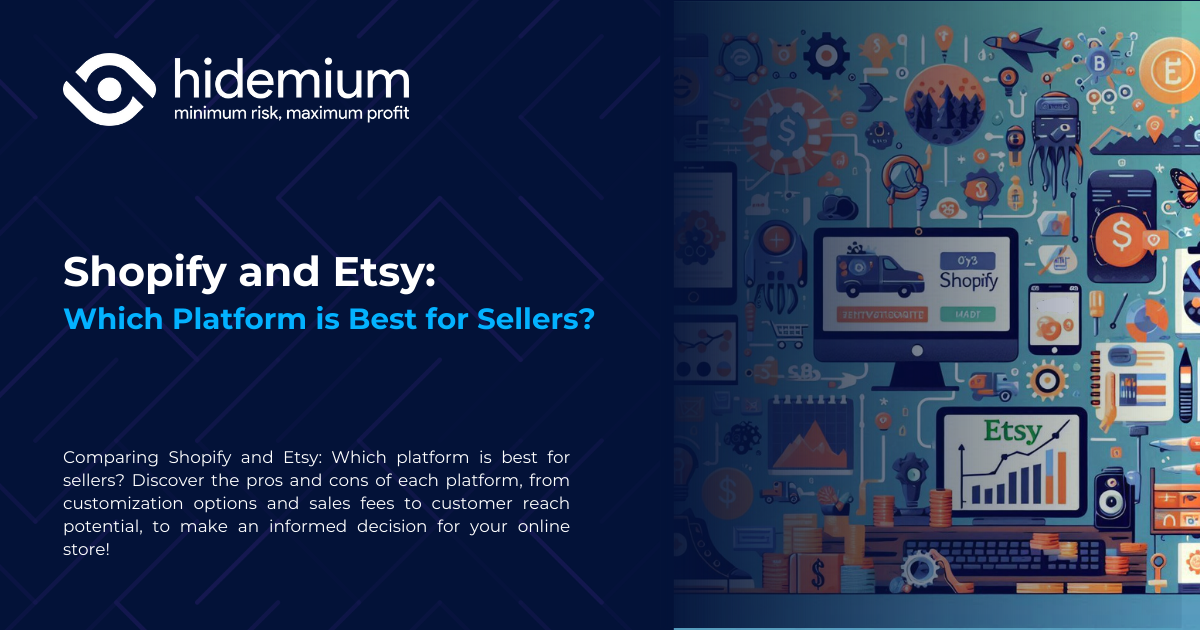


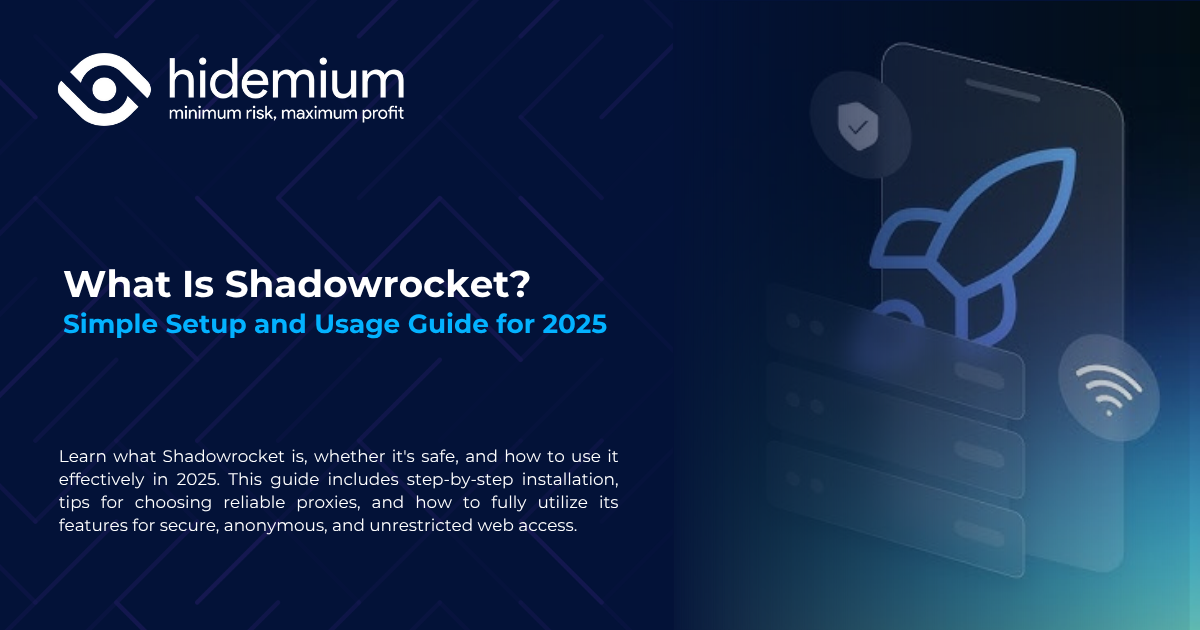

.png)
